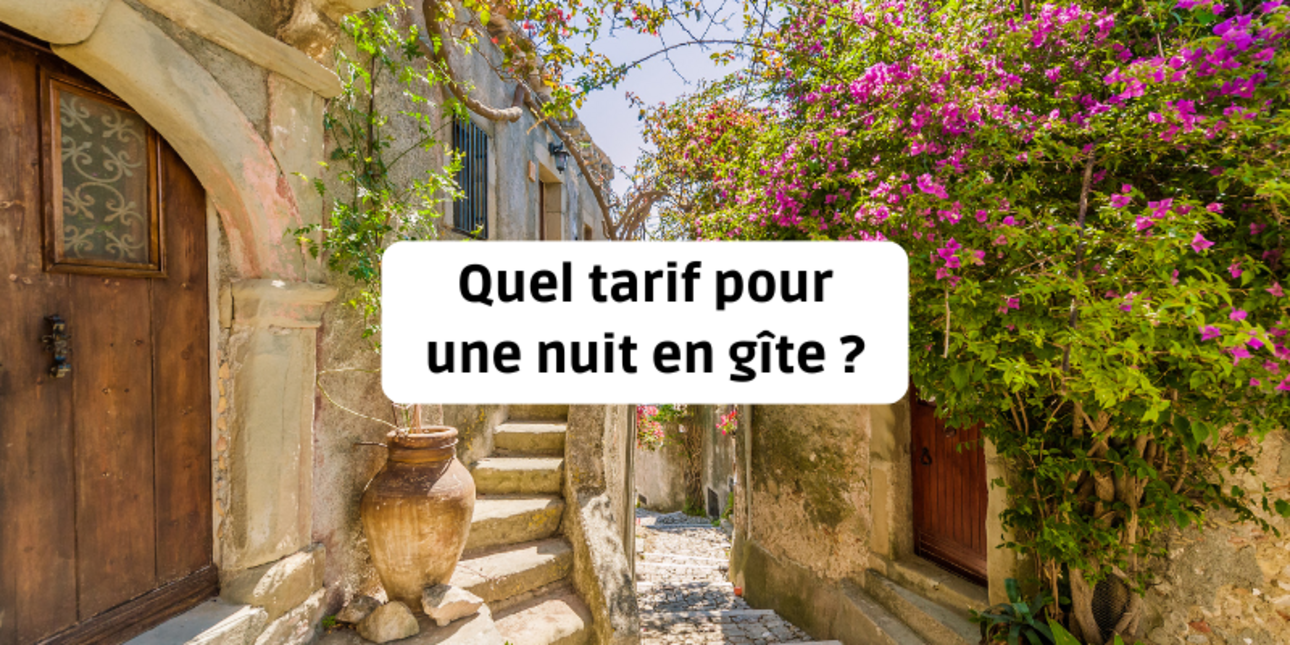
The cost of a gîte in France can vary considerably depending on a number of factors such as location, season, capacity and services offered. In this article, we'll explore in detail the different elements that influence the price of a gîte, to help you better understand how much you could spend for a night or a stay in this type of accommodation - setting the price of your future gîte.
Location is one of the main factors influencing the price of accommodation.
Gîtes located in regions tourist popular regions such as the Côte d'Azur, Brittany and the Alps tend to be more expensive than those in less popular areas.
For example, a gîte in Brittany can cost an average of €143 per night, but this can vary from €72 to €371 depending on the town and the season.
So the profitability of a gîte can be directly linked to its location, because a well-located establishment can achieve higher sales figures.
Gîte prices also vary according to the season.
In the high season (July and August), prices are generally higher due to high demand. In the low season (mid-November to March), on the other hand, prices are often more affordable.
For example, a gîte can cost €553 for 7 days in low season and up to €2,200 in very high season. A well-defined seasonal pricing strategy can help an owner to maximise annual income. The rates charged may also depend on local events in the département concerned.
The accommodation's capacity is another determining factor.
Gîtes that can accommodate a large number of people are often more expensive.
For example, an 8-person gîte can cost around €600 for a two-night weekend, while a 20-person gîte can cost up to €4,000 for a week in very high season.
This means that a small gîte can be let at a lower rate, but could compensate for this with a higher turnover of bookings.
It is essential for the owner to clearly define the capacity and use of the gîte to maximise its rental potential.
The services and facilities offered by the house can also influence the price.
Gîtes offering extra services such as end-of-stay cleaning, linen hire, or leisure facilities such as a heated swimming pool, may have higher prices.
For example, end-of-stay cleaning may cost €90 as an optional extra, and towel hire may cost €3.50 per person per week.
In addition, extra charges such as heating and electricity may sometimes be included or billed separately.
Offering services such as breakfast, a swimming pool or a spa can also increase the appeal of the accommodation and justify a higher rate.
The tourist tax is an additional charge that you and your host will have to pay on top of the rental price. It varies according to the commune and is generally €1.50 per adult per night.
This tax, which is sometimes included in the price, can affect the total cost of a stay and should be taken into account when booking. The tourist tax is set by the municipality and helps to finance the local tourist infrastructure.
A deposit is often required when booking a gîte. This deposit, which can vary from €200 to €500, is intended to cover any damage caused to the accommodation or furnishings during your stay.
It is important to establish these conditions before drawing up a rental contract, in view of the risk and the commercial relationship with your hosts.
The security deposit is refunded on departure if no damage is found.
If you want to open a gîte and benefit from labels such as Gîtes de France, you'll also need to consider membership costs.
For example, the membership fee for the Gîtes de France label is around €150 a year, while the Qualité Certifiée Gîtes de France label costs around €350 a year.
These labels can offer greater visibility on the market and attract more holidaymakers, but they also represent a fixed cost. Market research can help you decide whether membership of a label is justified in relation to the costs involved.
The cost of a gîte in France depends on many factors, including location, season, capacity and services offered. On average, you can expect to pay around €143 per night, but this can vary considerably.
By understanding these factors, you can set your own prices that are appropriate for your gîte and its target clientele.
As a rental company, it is essential to set clear objectives and put in place a rental strategy that will meet your customers' expectations. Finally, accurate and comprehensive information on booking websites can also make all the difference in attracting holidaymakers.
1. How do I sell a gîte?
2. Where to buy a gîte
3. How profitable is a gîte?
4. Buying a gîte or creating a gîte: which should you choose?
5. What are the formalities for opening a gîte?
6. The different types of gîtes
7. Taxation of gîtes
8. Gîte labels: a guarantee of quality for your rural accommodation
9. Gîte classification
10. Running a gîte as a business
11. How to communicate effectively for a gîte
12. How to choose the best platform for your gîte
13. What criteria should I take into account when buying a gîte?
14. Furnishing and decorating a gîte
15. What is the ideal number of bedrooms for a gîte?
16. The advantages of a large plot for your gîte
17. What are the essential features of a self-catering cottage?
18. Should a swimming pool be installed for a gîte?
19. What price should I pay for a gîte?